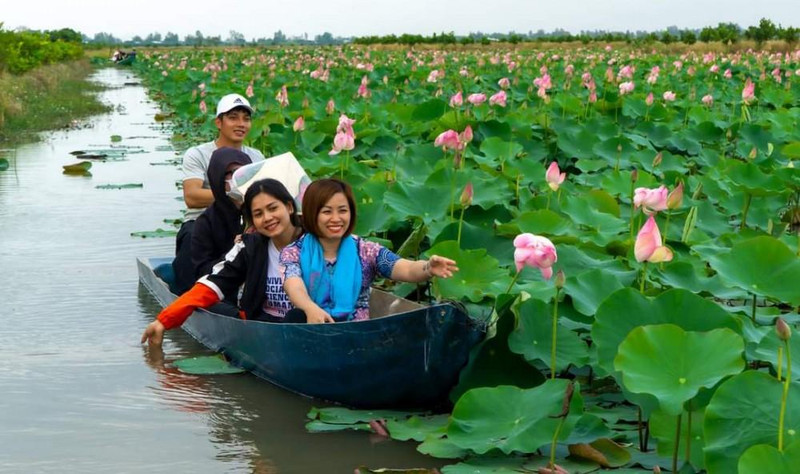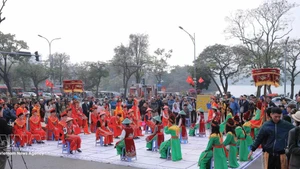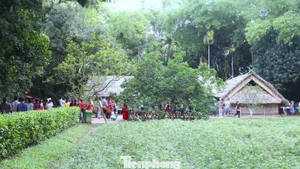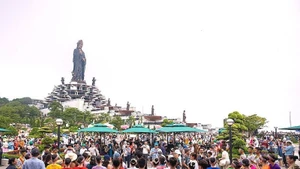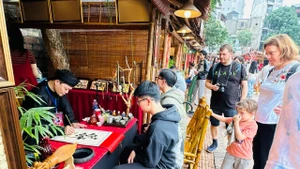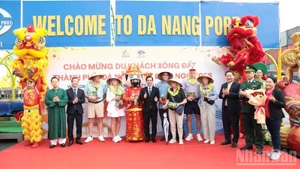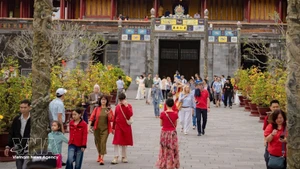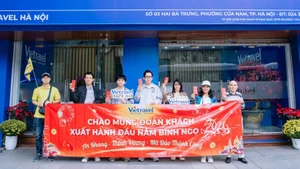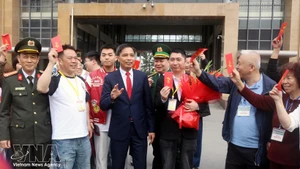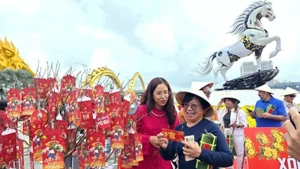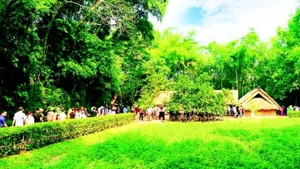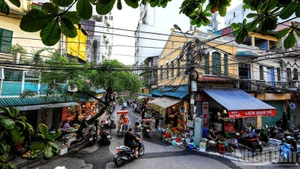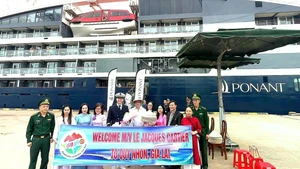Covering around 2 hectares in My Dong Commune, the Hoa Dong ecological site is a favourite tourist attraction providing leisurely travel experiences for visitors.
Visitors to the site can admire the beauty of vast rice fields and lotus farming areas while tasting delicious local dishes in small wooden houses.
Pham Thi Vem, the owner of Hoa Dong ecological site said that she came up with the idea of establishing a model combining agricultural production and ecological tourism a long time ago. The model not only benefits farmers but also helps visitors to explore the natural beauty of rice and lotus fields, she said.
As a major rice granary of Dong Thap Province, Thap Muoi District is equipped with favourable waterway and road transport systems. It is also home to vast lotus fields and unique traditional culture and arts. In addition, Thap Muoi is the first district in the province to have been recognised as a new-styled rural area with diverse agricultural products, particularly lotus-related ones.
These factors have created favourable condition for the locality to develop tourism. As a result, the district now has 15 tourism facilities, nine of which are located in lotus farming areas.
The facilities welcome more than 700,000 holiday makers every year, who come to visit lotus farms and shop for lotus-made products. The district’s annual tourism revenue reaches approximately 8.4 billion VND.
Today, ecological tourism has become a growing trend. Tourists now prefer visiting places with fresh air and friendly people to live with nature. Given the situation, the district’s authorities are paying due attention to developing agricultural tourism.
To date, agro-ecological tourist sites in Thap Muoi District have created jobs for nearly 500 farmers with stable incomes. In addition to fresh flowers, seeds and roots, the sites have also diversified the types of lotus-related products, such as essential oil, cosmetics, wine, milk, tea and other beverages, and food.
In order to increase the quality of ecotourism products, Thap Muoi District's Office of Agriculture and Rural Development has encouraged farmers to promote clean and environmentally friendly production.
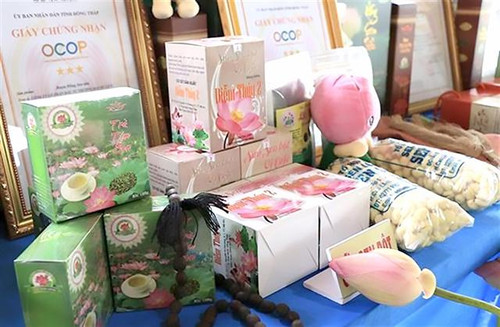 |
| Dong Thap has diversified the types of lotus-related products. (Photo: VNA) |
Following this direction, farmers can provide better services for tourists while meeting the needs of companies and businesses for raw materials, thus contributing to the project on restructuring the local agricultural sector.
Chairwoman of Thap Muoi District People's Committee Tran Thi Quy said that the district has implemented many solutions to develop agricultural tourism in the ecological and community-based direction, with a focus on promoting the value and potential of the lotus.
Accordingly, the district has expanded lotus-growing areas to create a stable source of raw material for enterprises and facilities working with lotus products, while taking action to attract further investment in the local tourist sites.
Attention is also paid to enhancing training for staff at community-based tourism businesses to improve their skills in a more professional and effective manner.
In addition, the district has been actively coordinating with travel businesses to design new routes linking tourist attractions in the area in a bid to lure more tourists and encourage them to stay longer for their vacation in the locality.
